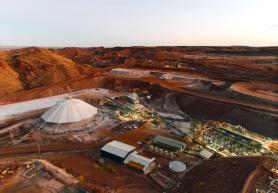
SEOUL -- A Memorandum of Understanding (MOU) signed earlier this month between POSCO and Invest Alberta marks the beginning of what could evolve into a substantial and enduring partnership between Korea and the resource-rich Canadian province.
Amidst global uncertainty fueled by climate change, international conflicts, and other factors affecting supply chains and food security, the timing of this collaboration becomes particularly relevant. The rationale behind the partnership is rooted in the need for both parties to develop and maintain long-term sustainable business.
Korea, with energy imports of predominantly oil and gas from various sources, recognizes the imperative to diversify its energy and critical minerals supply. The ongoing global push for electric vehicles (EVs) and batteries further emphasizes the need for a diversified supply chain.
What makes this partnership a pragmatic fit is the shared attributes between Korea and Alberta. Korea and Canada are stable democracies with robust business cultures grounded in the rule of law. The advantages that investment provides to Korean companies, such as access to talent, expedited business processes, and entry into key markets, align with the business environment in Alberta.
Alberta has a young and highly educated workforce. In just the last three years, Invest Alberta clients have announced nearly CAD$20 billion in investment and over 27,000 jobs, which is leading even more people to move there. The population of over 4 million is forecast to double within a few years.
We also share a commitment to sustainability. Alberta is proactively diversifying its energy sector for long-term sustainability with the ultimate goal of reaching net-zero by 2050. POSCO’s carbon footprint goals of a 10% reduction by 2030, 50% by 2040, and net-zero by 2050 are perfectly aligned with Alberta’s strategic approach to the energy transition.
However, the differences between Korea and Alberta complement the relationship. With a population around 13 times larger than Alberta, Korea brings economic scale, while Alberta, almost seven times larger in terms of landmass, offers abundant natural resources. Alberta, known for its rich geological endowment, possesses 29 of the 31 critical minerals essential for EV batteries.
The agreement with POSCO Holdings focuses on the extraction of lithium from oil-field brine in Alberta, underscoring POSCO's shift from steelmaking to the secondary battery business. The consideration of establishing a comprehensive company covering lithium mining, processing, sales, and transportation further signifies the depth of this collaboration.
Alberta's extraction technique for lithium, combined with existing infrastructure and agreements, streamlines access to minerals and markets. Pioneering technologies developed by leading companies like Sherritt, E3 Lithium, Lithium Bank, Umicore, and Summit Nanotech position the province to become a crucial refining and processing hub for critical minerals.
Korean companies, traditionally reliant on China for mineral resources, can now diversify their supply chains with a domestic collaboration in Alberta. Although Alberta may be considered a newcomer to the mineral business, its flexibility allows for nimble and creative application of green technology to mining operations, potentially becoming a model for sustainable practices.
Beyond its reputation for mountains and snow, Alberta has a conducive environment for building eco-friendly facilities. It has more abundant sunlight than Egypt and rich wind energy reserves that contribute to its appeal to various industries.
The province is actively diversifying into emerging sectors like technology, hydrogen, financial services, aviation, and logistics, further solidifying its position as a diverse and resilient economy. At the same time, continued investment in existing sectors of energy, clean tech, petrochemicals, and agriculture makes for a truly diverse economy.
As global dynamics continue to evolve, this partnership has the potential to serve as a model for international collaboration that goes beyond economic gains, fostering innovation and sustainable practices for the benefit of both Korea and Alberta.
Copyright ⓒ Aju Press All rights reserved.




